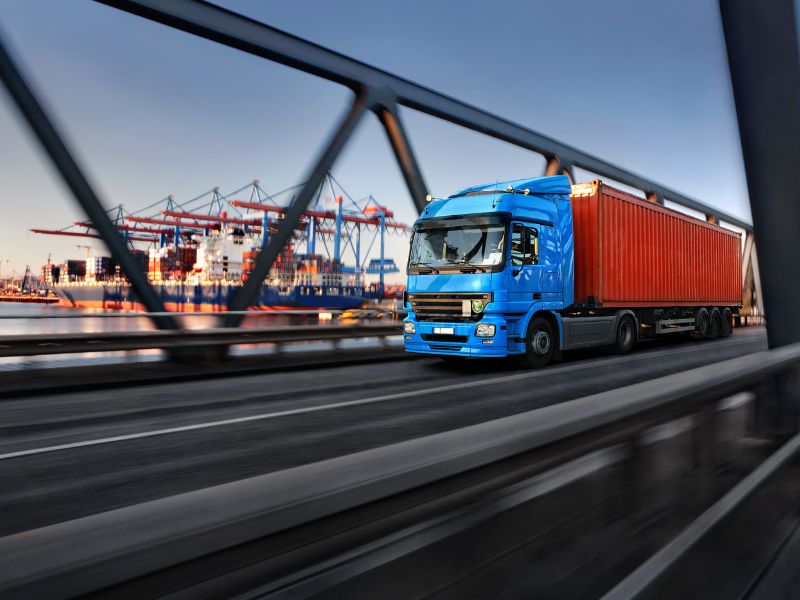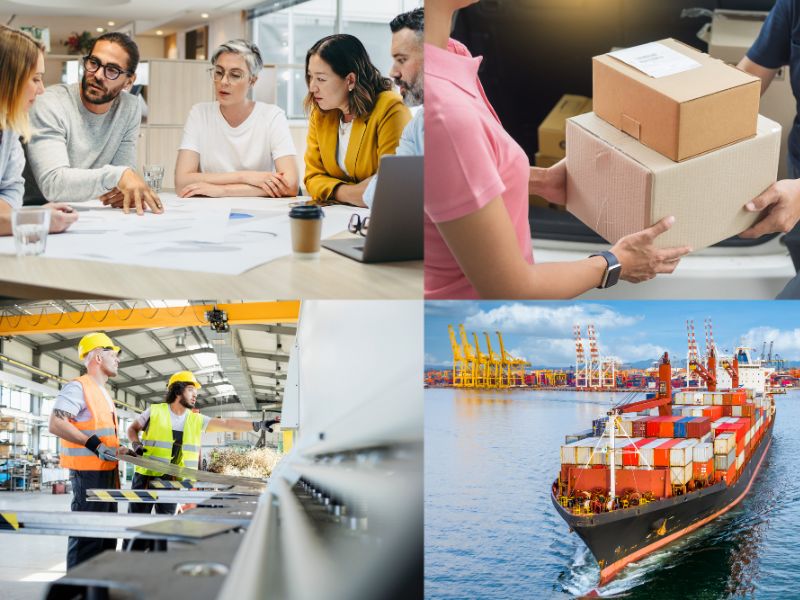No two days are the same in the supply chain industry, with shortages, global uncertainties and rising costs creating a challenging and often unpredictable environment.
These eight startups are transforming the industry with a collection of innovative, tech-driven and sustainable solutions – reshaping the global supply chain.
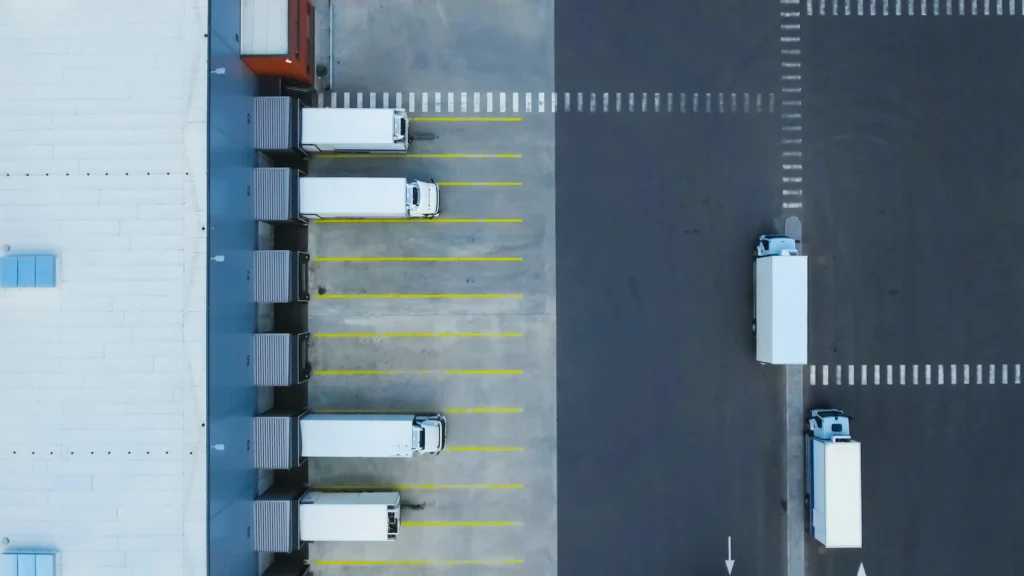
Founded by: Carl-Magnus Norden, Casper Norden, Alexandre Cleret, Alejandro Ortega Peniche and Mariele Atanasova
Accelerating the electrification of trucks is crucial for Europe to meet its target of a 24% reduction in emissions by 2030. Road transport represents 22% of CO2 emissions in Europe, with trucks and vans accounting for about half of that number.
French startup Decade Energy is providing logistics companies with holistic, reliable and cost-efficient solutions to enable the electrification of commercial electric vehicle fleets.
While the individual components needed for commercial fleet electrification are available, the necessary infrastructure to operate an electrified fleet remains complex and fragmented.
Logistics companies need to piece together and manage these systems themselves, resulting in costly installations, poor reliability, and inefficiencies. Decade Energy simplifies the electrification process, by integrating and managing these systems for customers – enhancing both operational and environmental efficiency for logistics providers.
This approach makes electric vehicles cost-competitive with diesel and will save millions of tonnes of GHG emissions.
“Decade Energy’s software platform reverses the current ‘push’ dynamic of electrification, where the transition is primarily driven by policy, regulation, and consumer demand, to a ‘pull’ dynamic, where operators seek to benefit from cost advantages,” says Mariele. “To achieve scaled electrification the shift has to make economic sense, which we achieve by connecting the different parts of the ecosystem and making them run as one efficient unit.”
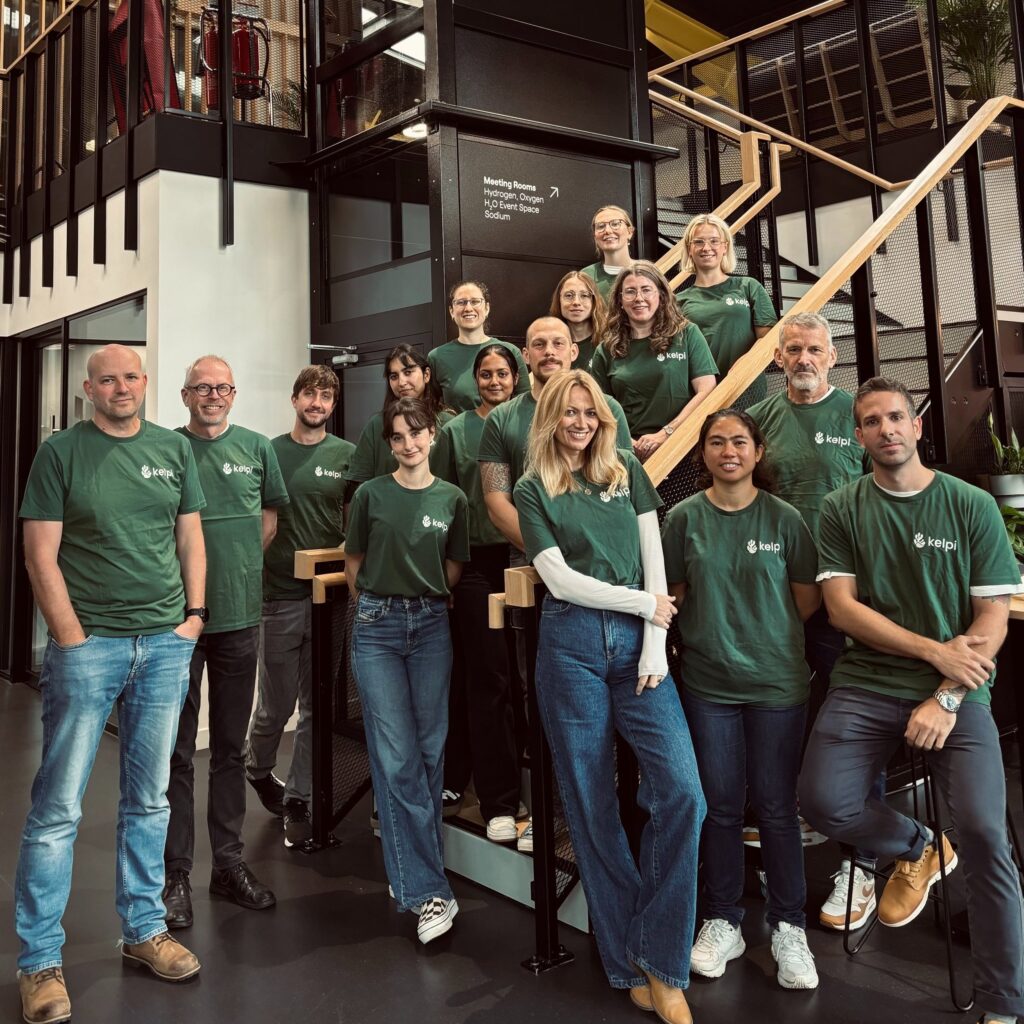
Founded by: Neil Morris, Murray Kenneth and Professor Chris Chuck
Kelpi was founded in 2020 by Neil, Murray and Chris, with the goal to develop a first effective, renewably sourced and fully biodegradable alternative to fossil fuel plastics in single-use packaging. From there, the startup has won global industrial clients and worked in collaboration with leading European producers of paper, card and fibre packaging.
The company’s biomaterial is unique in matching the performance of plastic – most notably with its strong water barrier and resistance to greasy contents or acidic foods. Kelpi uses only renewable feedstocks, sourcing seaweed that has been farmed sustainably.
“We’ve been consistently impressed with Kelpi’s team and technology, and their pioneering approach to developing biopolymers from renewable feedstocks like seaweed,” says Cam Ross, CEO at Kelpi investment partner Green Angel Ventures. “At scale, the Kelpi approach will play a vital role in reducing fossil fuel dependency.”

Founded by: Michael Cuingnet, Simon Kurbiel, Adrià Pérez Sánchez and David Vives
Born from a belief in sustainable logistics, road transport technology provider Tennders is keeping fewer empty trucks on the road and avoiding unnecessary miles with its transformative freight management system TenndersFMS. This unique FMS tool is improving truckload capacity by connecting the transport networks of companies through a private exchanger for their commercial agreements.
The startup’s founders, each coming from a supply chain background, felt there was a better way of doing things in the logistics sector. By taking a digital approach, the strain on workers is lessened, allowing people to operate more freely.
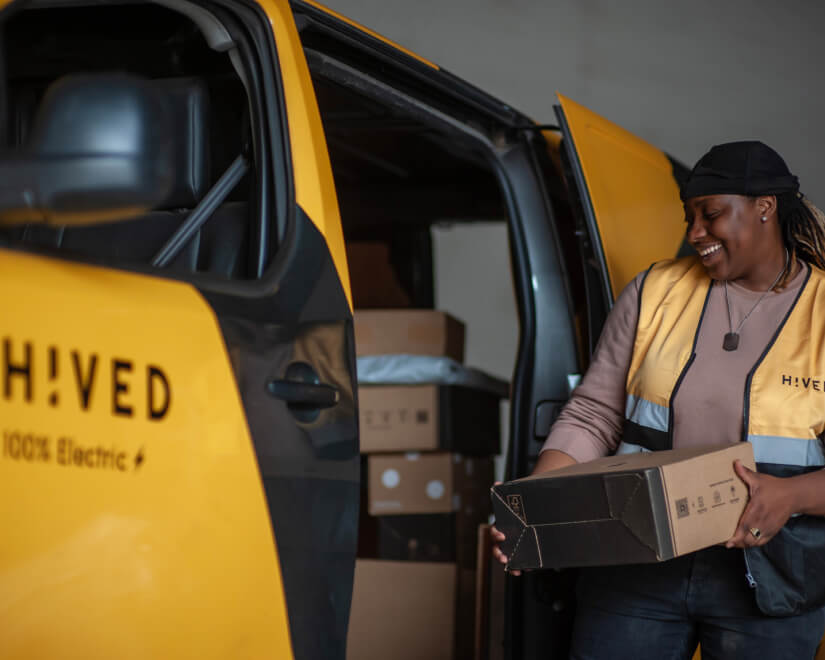
Founded by: Murvah Iqbal and Mathias Krieger
The first delivery company built for ecommerce, HIVED founders Murvah and Mathias created the company after noticing a lack of high quality, sustainable delivery options in the UK. They began by delivering parcels by bike, and the startup has only grown from there.
As one of the fastest growing startups in Europe, HIVED is on a mission to accelerate the transition towards tech-enabled and sustainable delivery methods – from reusable packaging to electric HGVs.
“No one is doing end-to-end electric delivery like HIVED,” says Leo Mulabdić, Vice President of Commercial Strategy and Network. “The business has developed the right value proposition combined with a clear market focus, which customers both recognise and appreciate. As HIVED now looks to supercharge the next phase of its growth across the UK, I’m hugely excited to lead our commercial strategy and network to create a fully integrated and scalable delivery model.”

Founded by: Nici Sundén-Cullberg and Axel Enblad
Construction logistics startup Alrik is on a mission to decarbonise the industry with software solutions designed to optimise fleets and empower distributors and transporters. The startup is taking a data-driven approach to provide stakeholders with information about cost and emissions, allowing them to more easily facilitate the green transition.
“Construction sites across Europe continue to grapple with uncertain lead times for materials from a countless number of suppliers and distributors, which hinders their progress,” says Nici. “The distributors also need to manage their own logistics network, with a bulk of this still being done over manual phone calls, hand-written records and whiteboards.
“The lack of coordination leads to poor supply chain visibility, expensive fleet operations and stalled projects on the client side. Alrik effectively eliminates manual coordination with, in many cases, 100 different suppliers and distributors, and unifies the entire supply chain network to deliver projects more efficiently.”
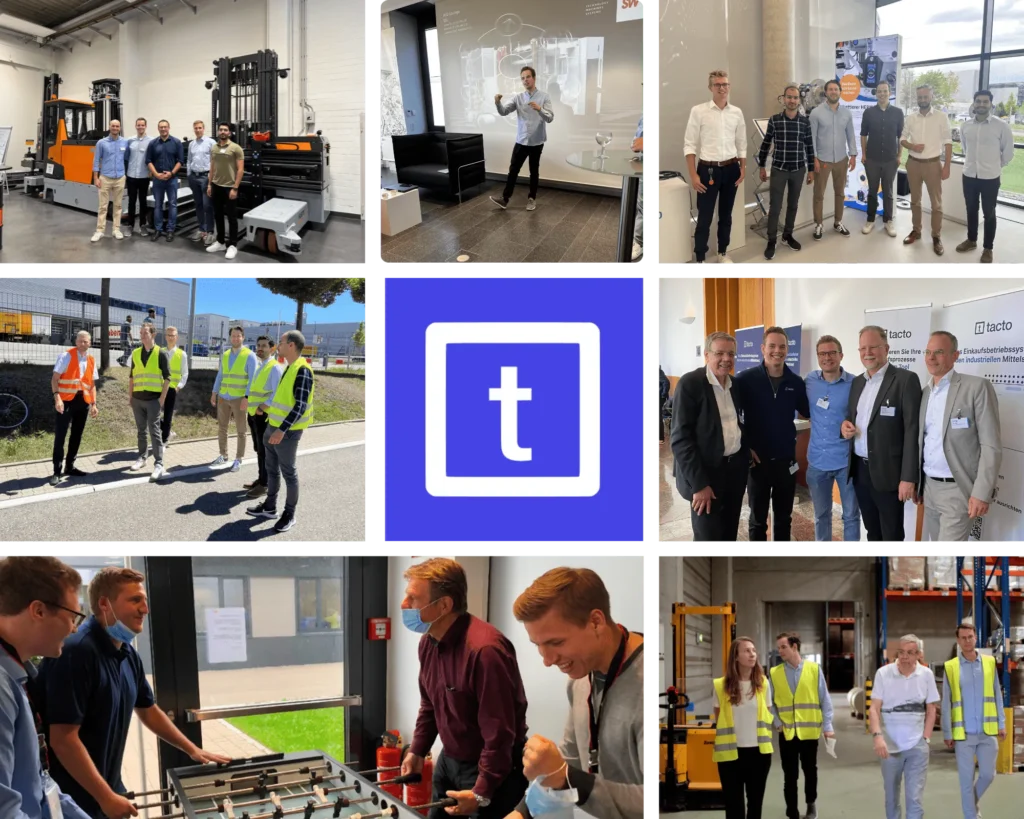
Founded by: André Petry, Johannes Groll and Nico Bentenrieder
Software development startup Tacto is creating future-proof supply chains for industrial SMEs by digitising procurement, enabling effective supplier collaboration and optimising resource utilisation. With 90% of procurement processes in medium-sized industrial businesses currently not being digitalised, Tacto’s software could make a significant difference for many companies.
“Increasing regulation and disruptions in supply chains pose major challenges for our economic backbone, the industrial SME sector: the cost base is rising, material supply is at risk, and the business outlook is uncertain,” says André. “Tacto is developing a software solution for future-proof supply chains for and together with SMEs in response to the challenges of today and tomorrow.”

Founded by: Emmanuel Akpakwu, Felix Ohnmacht and Sofia Radley-Searle
Startup Axmed is on a mission to create an equitable distribution pathway for high-quality medicines to Low- and Middle-Income Countries (LMICs), ensuring that no one is left behind due to logistical, financial or geographical constraints. The company is aiming to bridge the gap between the availability of medicines and the communities that need them with its B2B marketplace platform equipped with features to enhance transparency, traceability and reliability.
“These regions face extraordinary challenges but also present immense opportunities for healthcare transformation,” says Emmanuel. “Our platform tackles these inequities by consolidating fragmented systems, empowering buyers with efficiency, high quality and affordability, while enabling suppliers to scale sustainably in untapped markets.”
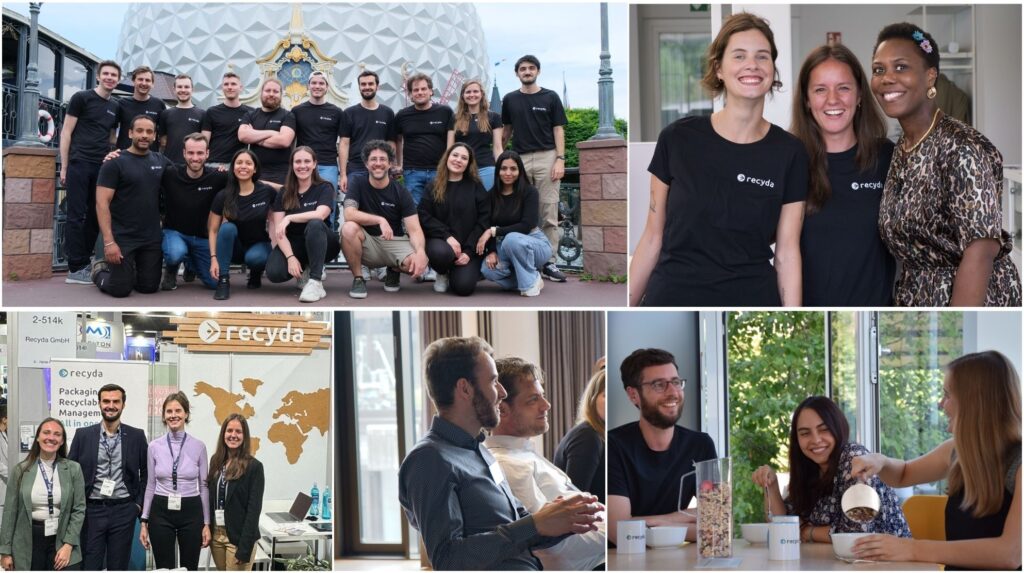
Founded by: Christian Knobloch, Vivian Loftin and Anna Zießow
Digital packaging expert Recyda offers a SaaS platform for sustainable packaging management, helping internationally positioned packaging manufacturers, brand manufacturers, brand owners and retailers manage data effectively and adhere to the complex international landscape of sustainability requirements.
Its solution is designed to digitally manage packaging data along the packaging value chain and conduct thorough evaluations. At the heart of the platform is a digital assessment of packaging recyclability and other sustainability aspects, aligned with international standards.
“We know the current challenges of the packaging industry well and the numerous difficulties that companies are currently facing,” says Christian. “With this knowledge, we have developed a software solution that specifically supports the implementation of sustainable packaging solution requirements for different markets and significantly optimises reporting obligations. With our software, we want to contribute to a sustainable future in which resources are used sensibly, and valuable materials are kept in the cycle.”
Make sure you’re following us on LinkedIn for the latest supply chain insights!


